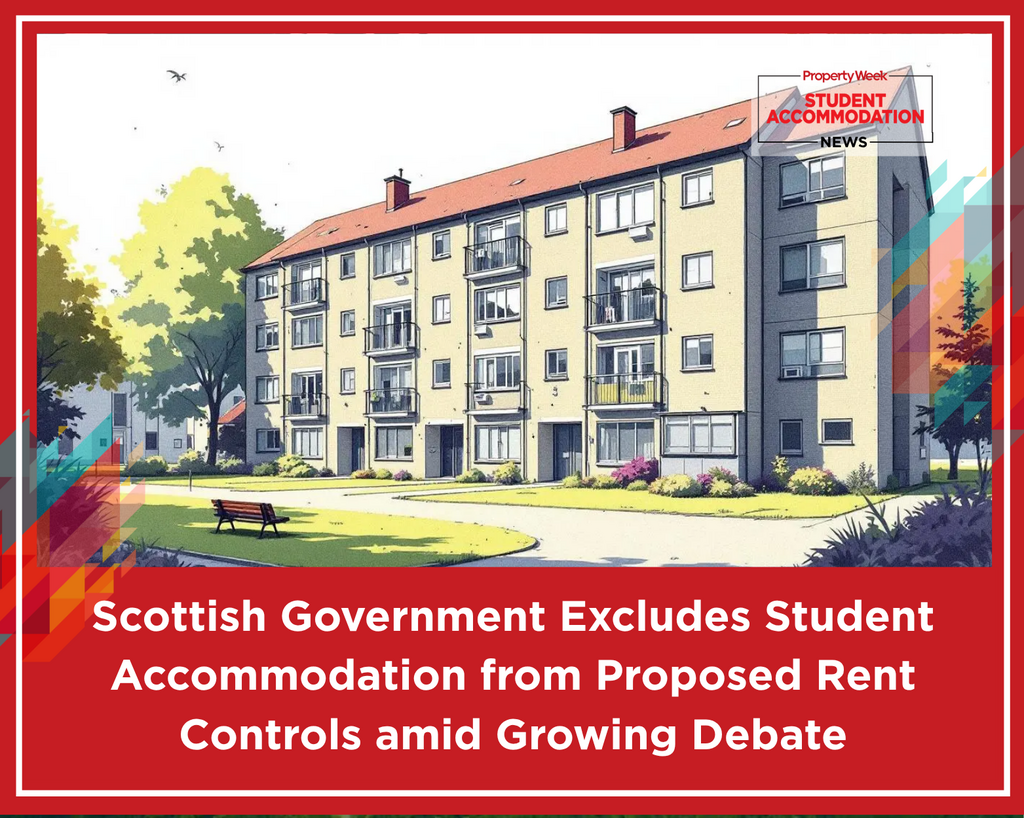
Scottish Government Excludes Student Accommodation from Proposed Rent Controls amid Growing Debate
Scotland: The Scottish Government has provisionally exempted student housing from new rent control measures in the Housing (Scotland) Bill, sparking controversy over tenant protections and investment implications.
The Scottish Government has provisionally exempted student accommodation from the rent control measures proposed in the Housing (Scotland) Bill, following a vote by Members of the Scottish Parliament (MSPs). The Bill aims to empower local authorities to establish rent control zones where increases would be capped at inflation plus one percentage point. However, despite an earlier amendment seeking to bring student housing within the scope of rent controls, the current trajectory excludes this sector, a decision that has generated significant debate.
Housing Secretary Mairi McAllan expressed that the amendment to include student tenancies was a “significant error” passed during stage two of the Bill’s consideration. She emphasised that student housing should not be treated as part of the mainstream private rented sector and thus ought to be exempt from rent controls in the present legislation. McAllan pointed out that the confusion around this matter reflected concerns raised by student housing providers, reinforcing the government’s stance to keep the sector outside rent control provisions.
The contentious exemption of student accommodation contrasts with other parts of the Bill, where provisions will apply to the mainstream rental market. Earlier announcements from McAllan confirmed that build-to-let and mid-market rent properties would also be exempted, a position that remains firm despite attempts by opposition parties, including the Scottish Greens, to broaden rent control coverage. Green MSP Maggie Chapman advocated for student renters to receive equivalent protections as other tenants and proposed a system for “special rent controls” in heavily impacted areas that could involve rent freezes or reductions. Chapman articulated her readiness to push the government to court to defend the proposed amendment, citing past instances where the government had defended progressive policies legally. However, McAllan warned that such a move could delay the Bill’s implementation and found the proposals difficult to justify.
The debate has prompted strong rhetoric, with Chapman accusing some landlords of seeking to evade rent controls, a claim challenged by Scottish Liberal Democrat MSP Willie Rennie, who urged a moderation of language in the discourse. Meanwhile, government representatives stress the importance of carefully defining exemptions to balance landlord and tenant rights effectively.
The Housing (Scotland) Bill itself is progressing through Parliament, with MSPs having voted on nearly 200 amendments in lengthy sessions and a final debate expected soon. Although the Scottish Greens support the Bill overall, they have pledged to seek substantial changes before its passage. Their involvement is pivotal for the Bill’s success given the current political composition of Holyrood.
Critics of the exemption for student accommodation, including the Scottish Green MSP Ross Greer and certain committee members, have highlighted the high rents and often poor standards in private student housing. They argue that students deserve the same rent protections as other renters, underscoring concerns about affordability and quality in the sector. Conversely, groups such as the Scottish Property Federation warn that extending rent controls to purpose-built student accommodation could deter investment, potentially limiting the availability of student housing.
Alongside the Bill's progression, the Scottish Government has opened a consultation on exemptions, inviting views on how exemptions for mid-market rent, build-to-let, and other properties might be structured, including circumstances permitting rents above the proposed caps. This dialogue reflects the government's intention to refine exemptions beyond the Bill’s passage, considering factors like properties maintained below market value or improved through investment.
It is notable that temporary rent increase restrictions introduced during the cost-of-living crisis will expire in March 2025, returning rent settings to open market values. The Housing (Scotland) Bill represents a longer-term attempt to introduce permanent rent controls, albeit with a defined scope that currently excludes student accommodation.
As this legislative process unfolds, the government appears committed to addressing "unacceptably high" rents while navigating complex sector-specific challenges, particularly balancing protections for tenants with the need to sustain housing supply and investment.

